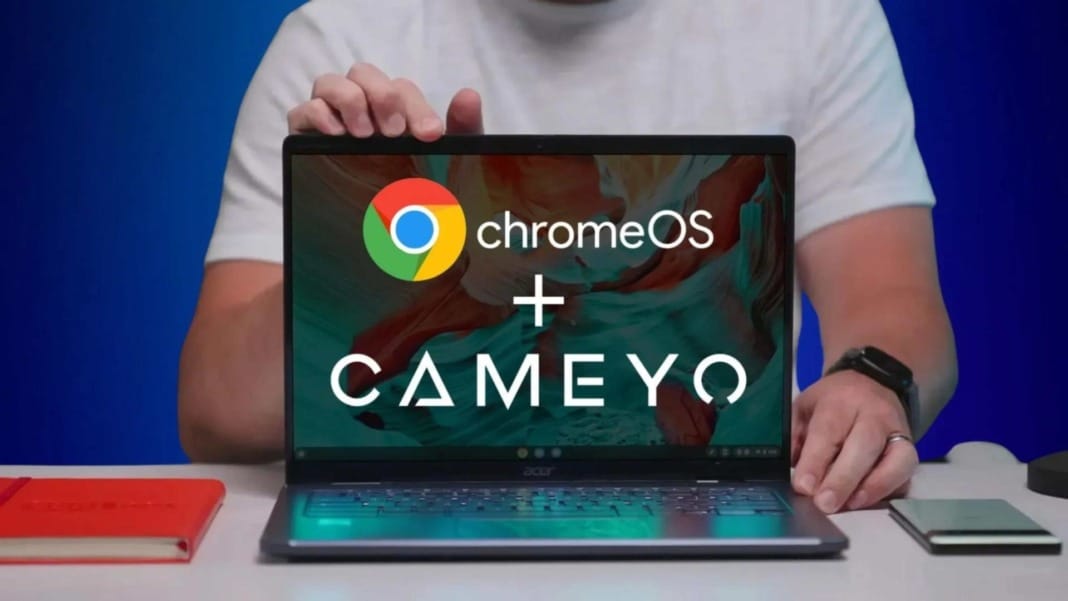Google is making a significant move by acquiring Cameyo, a leading software virtualization company. This acquisition aims to enhance the integration of virtualized Windows app support into ChromeOS. Cameyo, known for its innovative solutions in the virtualization industry, has been a trusted partner of Google. Now, Google is bringing Cameyo’s expertise and technology in-house, a move that is expected to revolutionise the virtualization landscape.
Enhanced virtual application experience
Last year, Google partnered with Cameyo to provide a seamless virtual application experience for legacy Windows desktop apps within ChromeOS. This partnership included features such as local file system integration, virtual apps presented as progressive web apps, and improved clipboard support.
Cameyo’s Virtual App Delivery (VAD) system allows businesses to run a wide range of virtualized Windows apps on ChromeOS devices without needing to run a full version of Windows. This includes productivity tools like Microsoft Office, design software like Adobe Photoshop, and even resource-intensive applications like AutoCAD. This means that these apps can function alongside Chrome and other web apps as if they were native to ChromeOS, providing a seamless user experience.
“This acquisition will pave the way for a more seamless integration of these virtualized apps into ChromeOS,” assures Cameyo co-founder and CMO Robb Henshaw in a statement to The Verge. “These further integrations will enhance the end-user experience and simplify the process for IT admins to deploy and distribute these apps to their users.”
Moving businesses to ChromeOS
As applications increasingly move to cloud and web-based platforms, Google sees an opportunity to attract more businesses to ChromeOS. With Cameyo’s enhanced virtualized app support, businesses can transition to ChromeOS without losing access to essential Windows apps. This move could make ChromeOS a more attractive option for businesses that are considering moving away from Windows or incorporating ChromeOS devices into their operations, offering them the flexibility to use their preferred Windows apps on a different platform.
ChromeOS growth in education and business
Google has been actively promoting Chromebooks in the education and business sectors, particularly after a lukewarm response from general consumers. According to Canalys, the majority of Google’s Chromebook growth has been in the US education sector, with US shipments accounting for over 80 percent of global Chromebook shipments in the second quarter of 2023. With the Cameyo acquisition, Google is poised to further bolster its presence in the business sector by offering enhanced support for Windows applications on ChromeOS, instilling confidence in its future growth.





